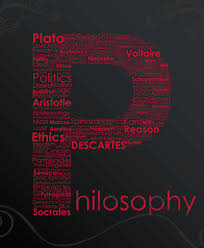Philosophy Notes On – Existentialism – For W.B.C.S. Examination.
Existentialism, any of various philosophies, most influential in continental Europe from about 1930 to the mid-20th century, that have in common an interpretation of human existence in the world that stresses its concreteness and its problematic character.Continue Reading Philosophy Notes On – Existentialism – For W.B.C.S. Examination.
According to existentialism: (1) Existence is always particular and individual—always my existence, your existence, his existence, her existence. (2) Existence is primarily the problem of existence (i.e., of its mode of being); it is, therefore, also the investigation of the meaning of Being. (3) That investigation is continually faced with diverse possibilities, from among which the existent (i.e., the human individual) must make a selection, to which he must then commit himself. (4) Because those possibilities are constituted by the individual’s relationships with things and with other humans, existence is always a being-in-the-world—i.e., in a concrete and historically determinate situation that limits or conditions choice.
Humans are therefore called, in Martin Heidegger’s phrase, Dasein (“there being”) because they are defined by the fact that they exist, or are in the world and inhabit it.
With respect to the first point, that existence is particular, existentialism is opposed to any doctrine that views human beings as the manifestation of an absolute or of an infinite substance. It is thus opposed to most forms of idealism, such as those that stress Consciousness, Spirit, Reason, Idea, or Oversoul. Second, it is opposed to any doctrine that sees in human beings some given and complete reality that must be resolved into its elements in order to be known or contemplated.
It is thus opposed to any form of objectivism or scientism, since those approaches stress the crass reality of external fact. Third, existentialism is opposed to any form of necessitarianism; for existence is constituted by possibilities from among which the individual may choose and through which he can project himself. And, finally, with respect to the fourth point, existentialism is opposed to any solipsism (holding that I alone exist) or any epistemological idealism (holding that the objects of knowledge are mental), because existence, which is the relationship with other beings, always extends beyond itself, toward the being of those entities; it is, so to speak, transcendence.
Starting from such bases, existentialism can take diverse and contrasting directions. It can insist on the transcendence of Being with respect to existence, and, by holding that transcendence to be the origin or foundation of existence, it can thus assume a theistic form. On the other hand, it can hold that human existence, posing itself as a problem, projects itself with absolute freedom, creating itself by itself, thus assuming to itself the function of God. As such, existentialism presents itself as a radical atheism. Or it may insist on the finitude of human existence—i.e., on the limits inherent in its possibilities of projection and choice. As such, existentialism presents itself as a humanism.
From 1940 on, with the diffusion of existentialism through continental Europe, its directions developed in keeping with the diversity of the interests to which they were subject: the religious interest, the metaphysical (or nature of Being) interest, and the moral and political interest. That diversity was rooted, at least in part, in the diversity of sources on which existentialism draws. One such source is the subjectivism of the 4th–5th-century theologian St. Augustine, who exhorted others not to go outside themselves in the quest for truth, for it is within them that truth abides.
“If you find that you are by nature mutable,” he wrote, “transcend yourself.” Another source is the Dionysian Romanticism of the 19th-century German philosopher Friedrich Nietzsche, who exalted life in its most irrational and cruel features and made such exaltation the proper task of the “higher man,” who exists beyond good and evil. Still another source is the nihilism of the Russian author Fyodor Dostoyevsky, who, in his novels, presented human beings as continually defeated as a result of their choices and as continually placed before the insoluble enigma of themselves. As a consequence of the diversity of such sources, existentialist doctrines focus on several aspects of existence.
Please subscribe here to get all future updates on this post/page/category/website


 Toll Free 1800 572 9282
Toll Free 1800 572 9282  mailus@wbcsmadeeasy.in
mailus@wbcsmadeeasy.in



















































































































